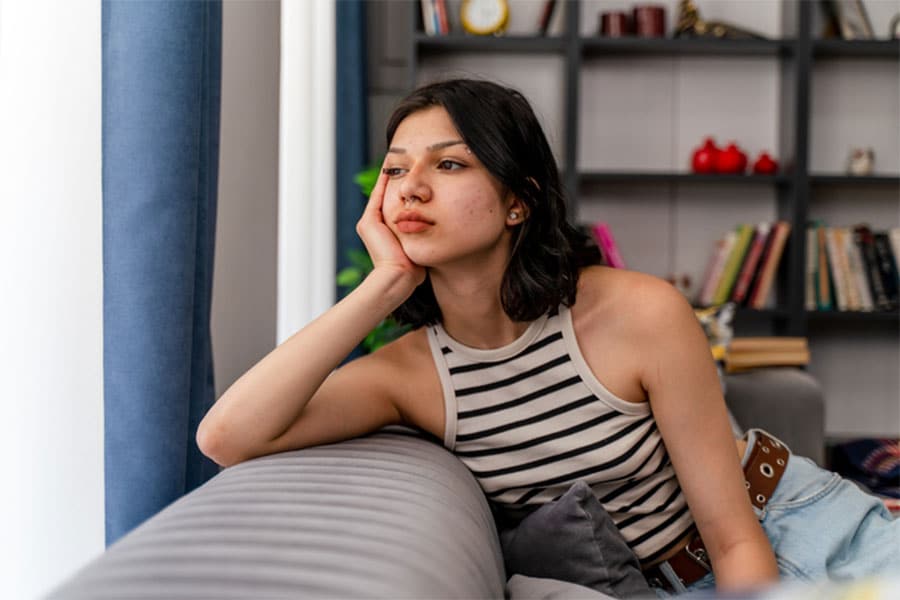The COVID-19 pandemic came with many mental health side effects, including a huge spike in social anxiety. There are approximately 76.2 million more people with anxiety now compared to pre-pandemic statistics. We’re here to break down why there was such a sharp increase in social anxiety and how you can overcome these obstacles in your own life.
Why Social Anxiety Became More Common after the Pandemic
There were a few factors that contributed to the spike in social anxiety after the pandemic. Depression peaked during lockdown because people felt trapped in their own homes. Anxiety was on the rise around the same time because COVID-19 was so new and unfamiliar. People simultaneously felt panicked to go in public and desperate to get out of their homes. This created a breeding ground for long-term mental health struggles.
After the lockdown was over, many people were still hesitant to leave their homes. They also got used to being home more often without socializing with others. No matter how uncomfortable being in the house was, they got used to it. That became the norm. Adjusting to “regular” life and social gatherings after that was/is incredibly challenging, as you likely have experienced in your own life.
What Social Anxiety Feels Like
Anxiety feels different to everyone, and each form of anxiety comes with its own experiences. Typically, someone with social anxiety will feel increasingly anxious when they think about socializing, prepare to socialize, or find themselves in an unfamiliar social situation. Some people have predictable triggers for their anxiety, and others feel anxious out of nowhere.
Common anxiety symptoms include the following:
- Rapid pulse
- Shortness of breath
- Racing thoughts
- Trouble focusing
- Ongoing negative thought patterns
- Thumping heartbeat
- Tightness of the chest
- Getting trapped in a “what if” loop in your mind
- Sudden headache or migraine
- Feelings of dread, worry, fear, and hopelessness
- Nausea or stomach problems
- Panic attacks
If you experience these symptoms in association with social events, you may have social anxiety. The mental health specialists at CNLD Neuropsychology are here to help you navigate those struggles.
Coping Strategies for Post-COVID Social Anxiety
Isolation is not a solution for combatting social anxiety. In fact, it may make your symptoms worse over time.
You could try to ease into social settings. Plan your shopping trips for a time when there are minimal people in the store, or go out with a couple of friends for an outdoor picnic. You do not have to immediately jump into crowded situations. You can slowly remind your brain that the world isn’t as scary as it feels.
A therapist could help you find personalized coping strategies for your symptoms, lifestyle, and personality. What works for your social anxiety may not work for someone else’s. CNLD Neuropsychology has licensed and experienced anxiety therapists on staff. We also offer anxiety testing, executive function coaching, educational advocacy, and an array of other services. Contact us at (734) 994-9466 to get matched with a specialist.


